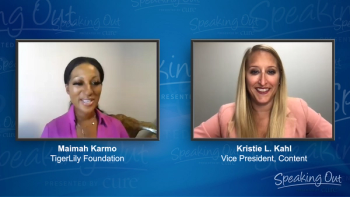
CURE spoke with Maimah Karmo, founder and CEO of the Tigerlily Foundation, about aspects outside of breast cancer treatment, like financial toxicity, psychosocial effects and more.

CURE spoke with Maimah Karmo, founder and CEO of the Tigerlily Foundation, about aspects outside of breast cancer treatment, like financial toxicity, psychosocial effects and more.

CURE spoke with Maimah Karmo, founder and CEO of the Tigerlily Foundation, about disparities in breast cancer care, and how they are being addressed.
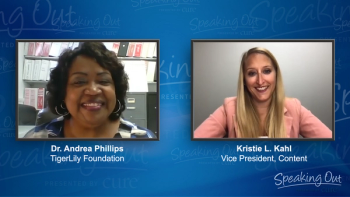
On behalf of TigerLilly Foundation, CURE spoke with Dr. Andrea Phillips about clinical trials in breast cancer.
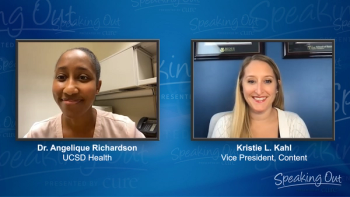
On behalf of TigerLilly Foundation, CURE spoke with Dr. Angelique Richardson, from UCSD Health, about HER2-positive breast cancer.

A breast cancer survivor expresses her emotions in a poem about all that cancer has taken from her.

Patients with breast cancer are advised to get regular sleep, exercise often, stay hydrated and eat healthy and nutritious foods to prevent “highly debilitating” headaches, according to an expert from Stanford University School of Medicine.

Twelve weeks of acupuncture treatment in certain patients with early-stage breast cancer resulted in a long-term reduction of pain levels.
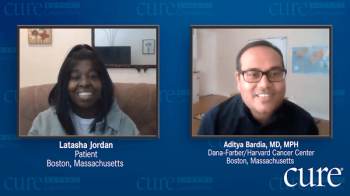
Latasha Jordan and Aditya Bardia, M.D., MPH, share advice for patients and caregivers on the importance of a positive outlook and attitude when living with triple-negative breast cancer.

A triple-negative breast cancer (TNBC) survivor, Latasha Jordan, considers the positive impact her support network has had on her treatment; and Aditya Bardia, M.D., MPH, emphasizes the importance of social support systems for patients with TNBC.

Latasha Jordan discusses her experience in a clinical trial with sacituzumab govitecan and comments on the side effects she experienced as well as the overall impact on her quality of life.

An expert oncologist highlights the importance of discussing clinical trial options with patients and comments on the recent FDA approval of sacituzumab govitecan in triple-negative breast cancer based on the ASCENT 3 trial.

A patient with triple-negative breast cancer, Latasha Jordan, reflects on the mental and emotional challenges she faced when she learned of her disease progression and shares her positive experience with physician referral thereafter.

A leader in breast oncology and a triple-negative breast cancer survivor discuss the role of active surveillance for post-surgical disease progression and emphasize the importance of support from health care providers after recurrence.

Aditya Bardia, M.D., MPH, and triple-negative breast cancer survivor, Latasha Jordan, discuss the importance of shared decision-making when considering mastectomy or lumpectomy and radiation for triple-negative breast cancer.

Latasha Jordan discusses her experience with neoadjuvant chemotherapy, and an expert in the management of breast cancer, Aditya Bardia, M.D., MPH, reviews common side events associated with systemic treatment.

"There is a ferocious fire that makes me restless," writes a two-time cancer survivor in a poem about her experiences with breast cancer.
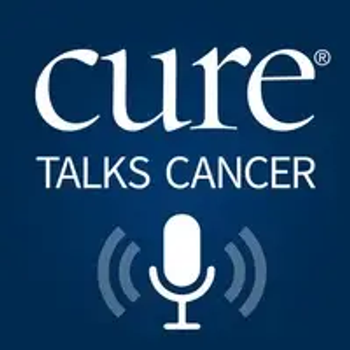
In this episode of the “CURE® Talks Cancer” podcast, the hosts of the ‘Stage 4 Clinger’ podcast share the story of their cancer and caregiver journeys and how it led to the conception of their podcast.

A woman writes about the feeling of ambivalence that comes with each milestone in the treatment journey for her breast cancer.

A breast cancer survivor lists 5 steps that she will take to get her health back on track.
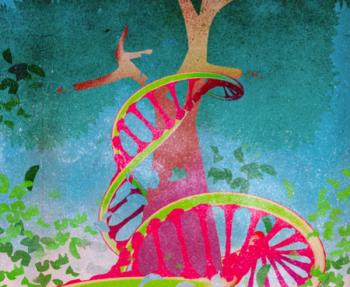
Knowing they’ve inherited a genetic mutation for stomach or breast cancer gives patients the power to plan ahead.

A caregiver writes about her daughter’s breast cancer odds. “One of the most difficult things I deal with on a daily basis is realizing that I didn’t have to say goodbye to my child because of luck,” she writes.

Initiative Spurred by New Report Detailing Systemic Racism and Barriers to Care in the 10 Metro Areas in the U.S. Experiencing Greatest Disparities

A woman living with metastatic breast cancer writes a poem about her reality.

A woman dedicates a poem to the experience of meeting a fellow breast cancer survivor.

Articles containing misinformation on social media sites like Facebook and Twitter were more likely to be shared and liked than those with accurate information.